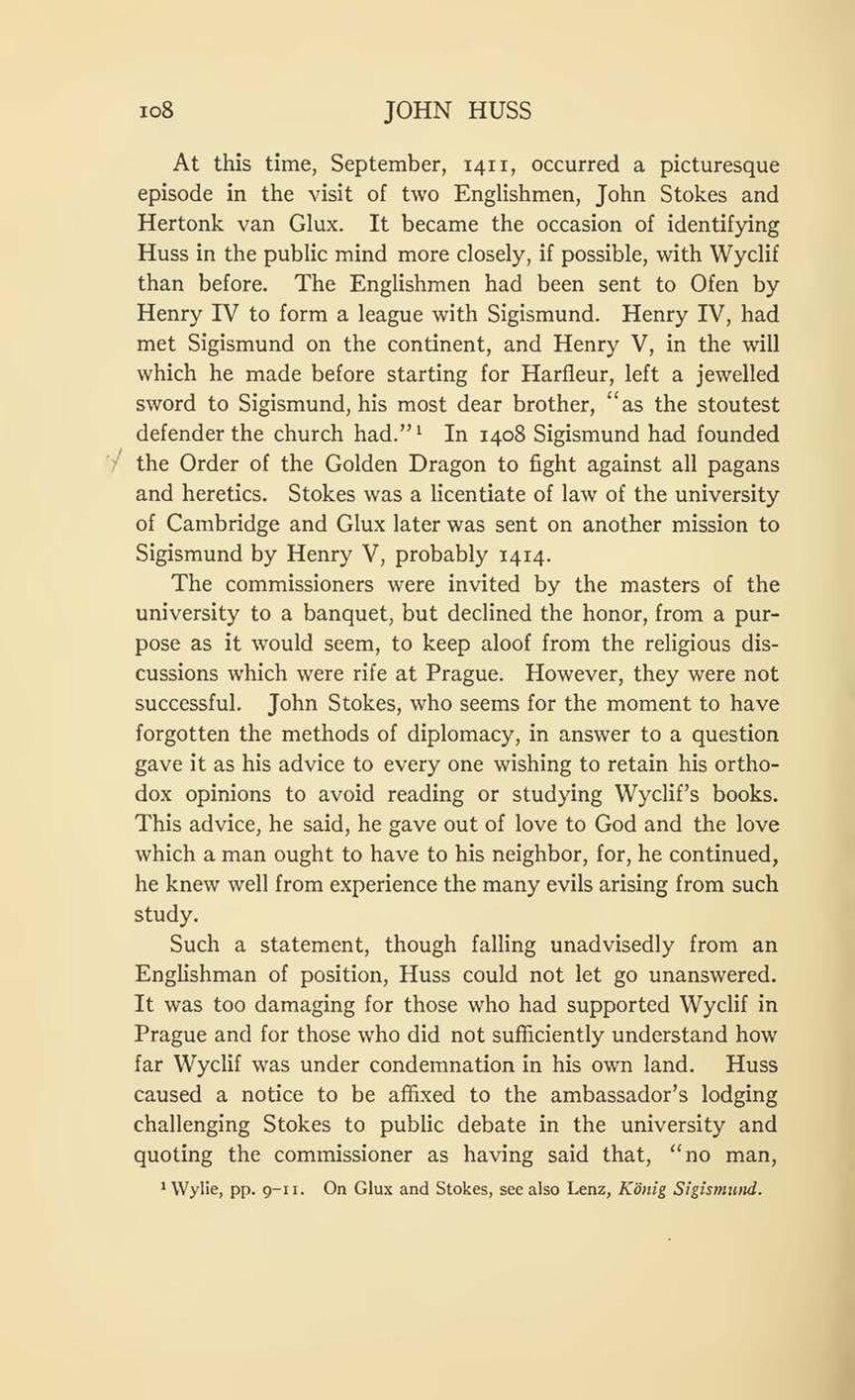At this time, September, 1411, occurred a picturesque episode in the visit of two Englishmen, John Stokes and Hertonk van Glux. It became the occasion of identifying Huss in the public mind more closely, if possible, with Wyclif than before. The Englishmen had been sent to Ofen by Henry IV to form a league with Sigismund. Henry IV, had met Sigismund on the continent, and Henry V, in the will which he made before starting for Harfleur, left a jewelled sword to Sigismund, his most dear brother, “as the stoutest defender the church had.”[1] In 1408 Sigismund had founded the Order of the Golden Dragon to fight against all pagans and heretics. Stokes was a licentiate of law of the university of Cambridge and Glux later was sent on another mission to Sigismund by Henry V, probably 1414.
The commissioners were invited by the masters of the university to a banquet, but declined the honor, from a purpose as it would seem, to keep aloof from the religious discussions which were rife at Prague. However, they were not successful. John Stokes, who seems for the moment to have forgotten the methods of diplomacy, in answer to a question gave it as his advice to every one wishing to retain his orthodox opinions to avoid reading or studying Wyclif’s books. This advice, he said, he gave out of love to God and the love which a man ought to have to his neighbor, for, he continued, he knew well from experience the many evils arising from such study. Such a statement, though falling unadvisedly from an Englishman of position, Huss could not let go unanswered. It was too damaging for those who had supported Wyclif in Prague and for those who did not sufficiently understand how far Wyclif was under condemnation in his own land. Huss caused a notice to be affixed to the ambassador’s lodging challenging Stokes to public debate in the university and quoting the commissioner as having said that, “no man,
- ↑ Wylie, pp. 9–11. On Glux and Stokes, see also Lenz. König Sigismund.
